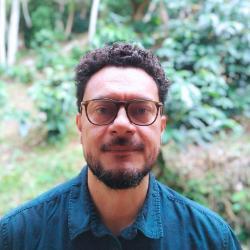 UF Center for Latin American Studies
UF Center for Latin American Studies
Days: Thursdays
Times: 10:40 am - 1:40 pm
Location: Grinter 376
Course description
Forthcoming
 Jairo Baquero-Melo
Jairo Baquero-Melo
Assistant Professor, Center for Latin American Studies
392 Grinter Hall
P.O. Box 115530
Gainesville, FL 32611-5530
E-mail: jbaqueromelo@ufl.edu
Tel: 352-392-5235
Research Interests
Environmental justice; Political ecology; Critical agrarian studies; Political economy; Intersectionality; Violence; Peacebuilding; Labor studies
Geographic Expertise
Colombia [Pacific, Amazonian, Andean regions]; Darien region